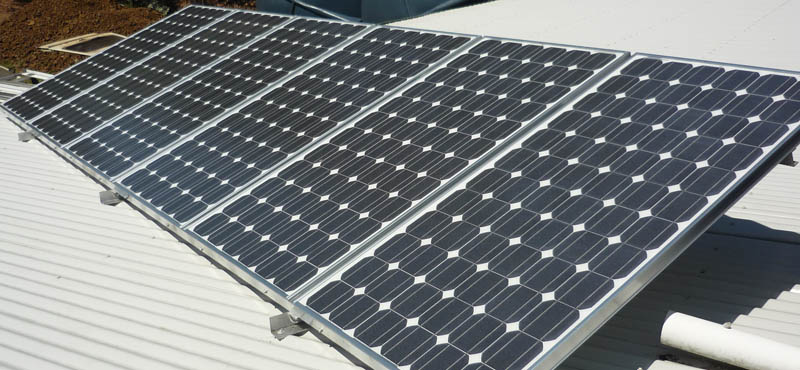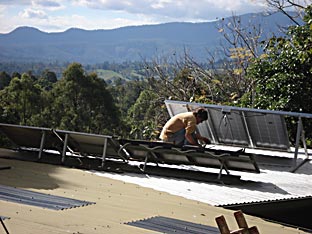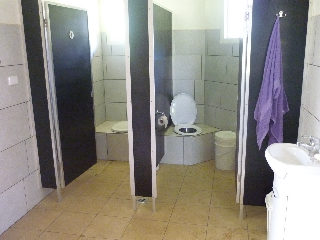
| Overview | History | By-laws | Strata info | Map | Contact Info |
| News/Events | Environment | Accommodation | Links | Technologies | Real estate |
TechnologiesSolar Power
Billen Cliffs was founded as a 'solar village', although the original farm buildings were already connected to mains power. Several lots are now serviced with 240v power, although most units operate economically on environmentally sustainable stand alone 12, 24 or 48 volt DC solar systems, creating energy from nature. Most solar systems include an inverter to provide 240v AC power as required, but the existence of many 12v appliances means that an inverter is not necessary to enjoy most 'creature comforts'. Most mobile phones, laptops etc these days come with a 12v cigarette lighter car charger, doing away with the need for an inverter. Solar electricity is clean, noiseless and uses no fuel except sunlight. Solar energy is renewable in that the sun will shine another day to recharge your batteries. Another argument in favour of low voltage is the safety aspect. Anything less than 120v DC is not considered lethal. This makes doing your own 12v wiring a feasible option. Solar hot water systems are also popular and efficient. Most cooking is achieved using bottled gas. Some residents also have a generator as backup during extended overcast periods. CLICK HERE for info on the Billen Hall solar project
Composting toilets offer an alternative to septic tank systems, and are widely used at Billen Cliffs. A septic installation can cost $5000+, requires a plentiful water supply for toilet flushing and is far less environmentally sound than the option of a composting toilet. Communications For internet access there are wifi and satellite options. Mobile reception is variable depending on your provider, with a few black spots due to the terrain. The local television transmitter is at Mt Nardi on the other side of the cliffs, so terrestrial television reception can be difficult to achieve.
|

 Living
on solar power conditions you to be more aware of your
power usage - to turn off lights and appliances that are
not being used, and to be aware of how much power is
coming in compared to your overall usage. In the average
240v household little attention is paid to how much power
an appliance uses.
Living
on solar power conditions you to be more aware of your
power usage - to turn off lights and appliances that are
not being used, and to be aware of how much power is
coming in compared to your overall usage. In the average
240v household little attention is paid to how much power
an appliance uses.  Composting
toilets
Composting
toilets